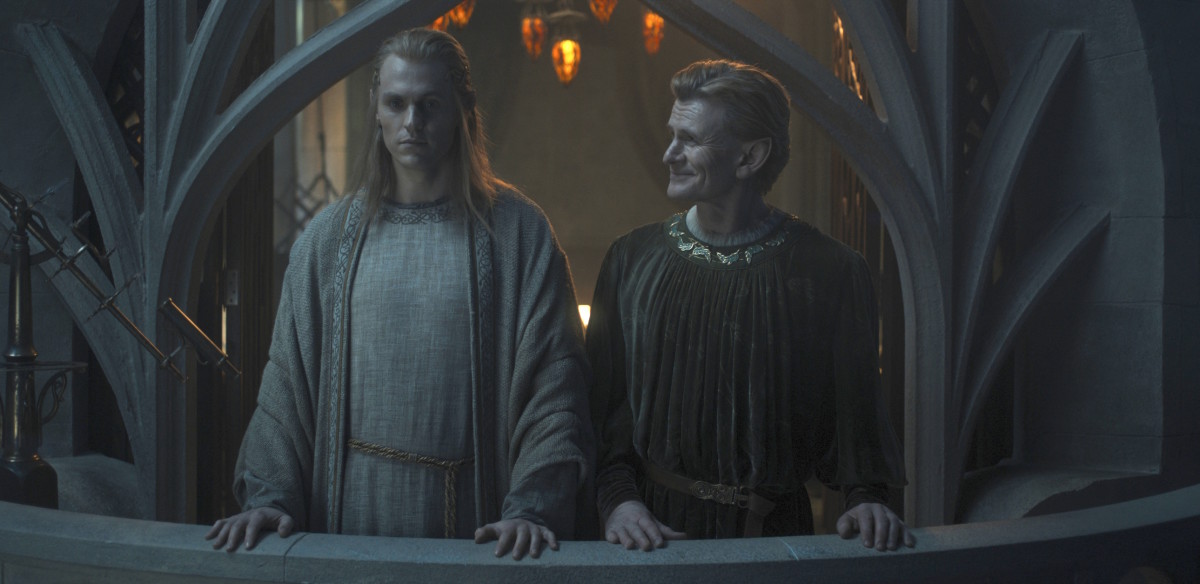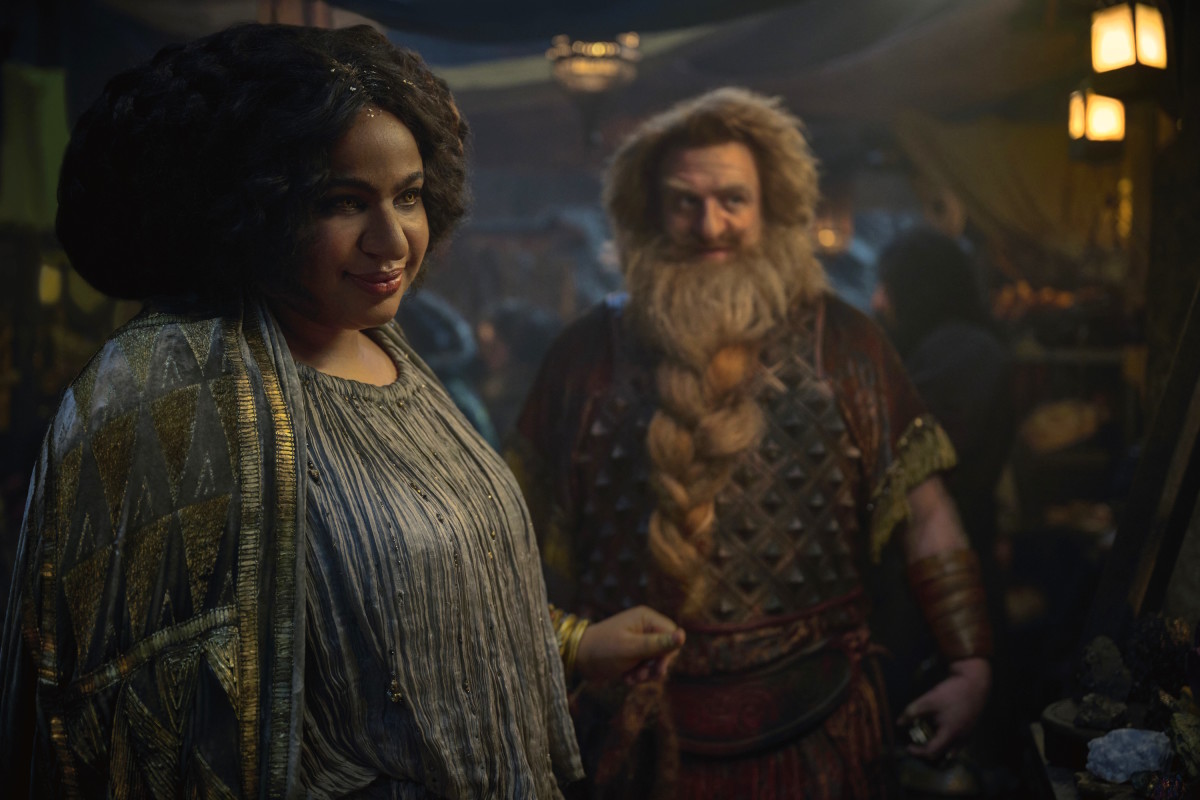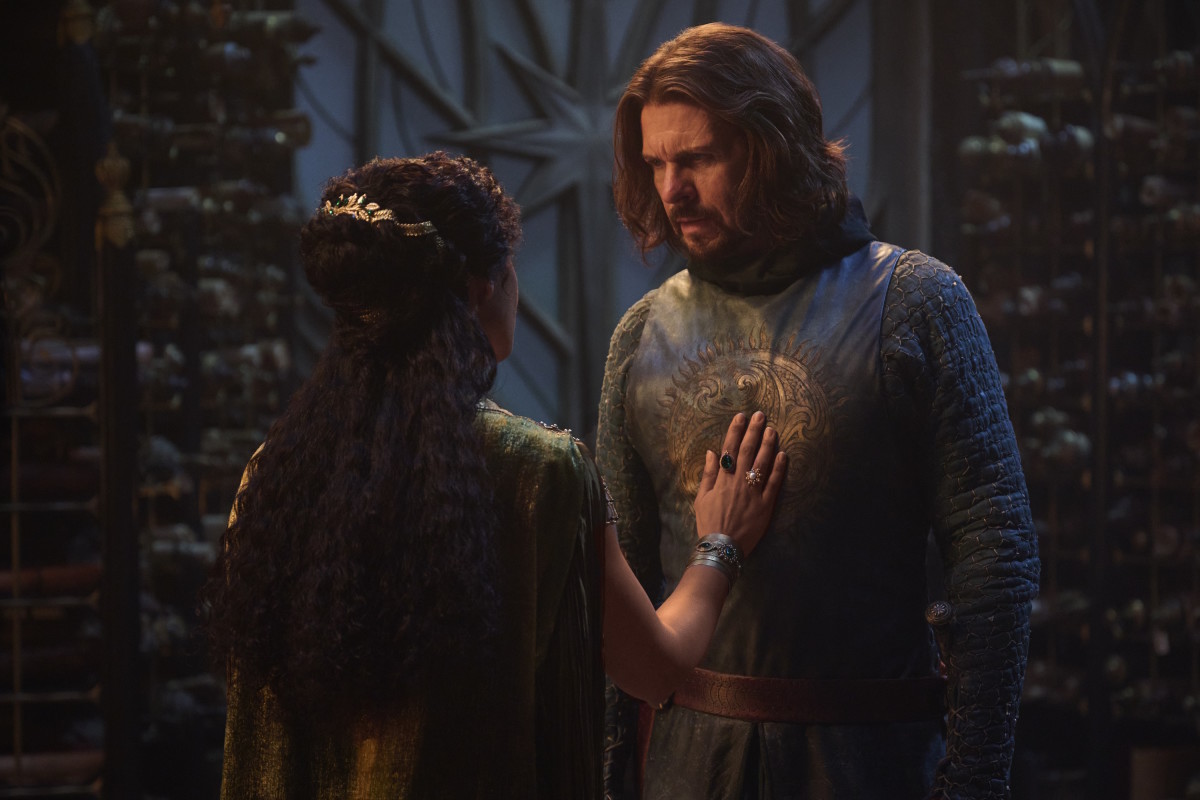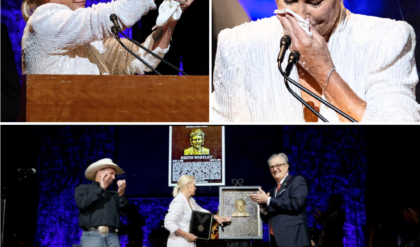Episode 5 features the season’s strongest stories so far
Rings of Power Season 2 Episode 5 is a tragedy – the good kind, though. It’s the kind where, even though you know everyone’s going to end up miserable and only terrible things lie in store, you can’t help but feel a yearning for events to play out differently and even a tiny sense of horror over how bad they’ll get before all is said and done. It’s also the first time the season really digs into its core idea of power and what happens when you get it.
Peter Jackson’s film trilogy, and even Tolkien’s work to an extent, credit Sauron’s malignity and the One Ring’s corrupting essence for transforming people. Rings of Power Season 2 Episode 5 takes a more nuanced view and examines the personal faults that make such a transformation possible and the people whose complicity let it happen. Should it have taken five episodes for the series to finally explore its central theme? That’s a discussion for another time. For now, this episode is easily the strongest in the series so far.
And “playing” is key. Charlie Vickers gives Annatar’s quietude a malicious playfulness that underscores the casual cruelty of his actions. He has a bigger goal in Eregion. Destroying someone from the inside out is simply a fun little bonus. Annatar’s interactions with Celebrimbor devolve even further into what resembles an abusive relationship in every scene. He gaslights, isolates, and lies. He worms his way into the minds of Celebrimbor’s friends, playing on their insecurities – normal things such as the need to feel appreciated or loved – to gain their loyalty.

It’s captivating in its darkness and an ambitious departure from Tolkien’s original plan for Celebrimbor, one that gives the writers more flexibility to experiment with depictions of power. Equally as important, it takes Sauron’s evil off the battlefield, out of the detached text of myths and legends, and makes it more personal – and him a more interesting and dangerous villain. He’s not just a big fella in a suit of golden armor like in Jackson’s films. He’s someone the likes of whom you’ve probably known at some point in your life.
Sauron’s plans are also unfolding a short distance away in Khazad-Dum, albeit indirectly. Having acquired a ring of power, King Durin wastes no time on strengthening his position in his realm and among the other dwarven kingdoms, and the ring wastes no time strengthening its hold on him. The ring gives Durin a preternatural understanding of stone and earth, and after resolving his kingdom’s initial trouble, he casts aside the Stone Singers and sets about extracting as much wealth as possible from beneath his people’s feet – and from inside their wallets.
Peter Mullan manages to make Durin IV’s sudden turn from stubborn old man to vicious miser convincing, despite how quickly it happens, and the rift between him and his son becomes a family tragedy. The only path to reconciliation King Durin leaves open for Durin the younger is one of complete obedience to his profit-fueled madness at the expense of his loved ones and their future. He effectively weaponizes his son’s fear of losing his father and forces him on a path that would see him lose everything else instead, were it not for his wife, Disa.
In the midst of all the paternal angst and high drama, Sophia Nomvete’s Disa continues to steal the show, with a performance that carries every scene and lends much-needed substance to a fairly straightforward plot. The setup of pitting a wayward ruler against a strong-willed hero – Disa, in this case – is a familiar one, but Nomvete plays Disa with such earnestness that it’s impossible not to believe in the strength of her conviction and the importance of what’s at stake.

Episode 5, mercifully, avoids the fanservice trap its predecessor gleefully hurled itself into, though there is one small exception. Earlier episodes are pointed in their depiction of how the world is changing, and even King Durin eloquently says its very bones are stretching beneath the dwarven kingdom. It’s a little disappointing, then, to see the emphasis so firmly on greed pushing them to delve too deep toward an inevitable, fiery outcome.
That greed is important, certainly. But King Durin so casually tosses centuries of dwarven tradition out the metaphorical window – effectively hastening the same decline of his people that he sought to prevent – for the sake of capital gain, and no one has anything to say about the loss of tradition and culture. Perhaps, like so many of Rings of Power’s other Big Ideas, these glimpses into a dying world and the desperate measures people take to preserve the status quo will turn into something more fully realized in later seasons, should we be fortunate enough to get them – and should the Balrog not overshadow everything else.
The Lord of Mordor and his rings may be far from Numenor’s shores for now, but Elendil has plenty of new troubles to contend with anyway, as his promise to Miriel suddenly becomes much more difficult to keep. No question remains about the right of Pharazon – now Ar-Pharazon, using a prefix that denotes kingship in Numenor – to rule. Like any good usurper, Pharazon sets about dismantling the structures that supported the old regime, including stripping those faithful to Miriel of their rank in society; enforcing new values; and exploiting faults in society for his own gain. Numenor comes with a ready-made fault: the strain between the Faithful – Tolkien’s term for the Numenoreans who still follow the elven gods – and those like Pharazon who want to forge an age of humans.

It’s the making of a proper revolution story, though Rings of Power runs into a slight issue here. So far, all we’ve seen of the elves is their worry over Middle Earth’s decline and fear of Sauron’s return, barring a few tense moments near the first season’s climax. There’s little to suggest the haughtiness and lack of concern for other races that characterized Tolkien’s elves of the Second Age, and it keeps this pivotal moment in the island nation’s history from having the context to justify the intensity of feeling among the reformers that we’re meant to accept.
What carries these segments is the tangled mess of human relationships and how it ties into the season’s bigger idea. Numenor is devoid of Sauron’s presence – for now, at least – but the island is such a torrent of resentment, pain, and naked ambition that it needs no supernatural forces to bring out the worst in people. Pharazon’s son Kemen goes from being a snivelling underling to a snivelling middle manager, as is always the way of things, though his interest in persecuting the Faithful stems as much from a desperate need to please his father as it does a desire for status. Elendil’s daughter Earien devotes herself to Pharazon’s cause to wreak vengeance on her father, her queen, and their deeply held beliefs no matter what it costs.
Tyrants and deceivers are all well and good, but the point Rings of Power wants to make with all this is that corruption thrives only when other people let it. Sometimes that complicity is unwilling, as in Durin’s case. Just as often, it’s with an eye to what others can gain from it, like in Numenor. Attempts to lay a foundation for future events often do so at the expense of substance in the present, but this set of stories is a strong example of build-up done right.
Rings of Power Season 2 Episode 5: The Verdict
Episode 5 is the best of Rings of Power Season 2 so far. It has a thematic coherence and narrative ambition the previous episode so sorely lacked, and while switching between so many perspectives in such a short time still makes for choppy storytelling, this episode does, at least, give its characters the courtesy of actually having something to do. The only downside is that the gap between events in Eregion, Numenor, and Khazad-dum and the rest of Season 2 makes me wish more than ever for a season structure free from the eight-episode format’s confines, where everyone’s story has to progress in some capacity.

In the midst of all the paternal angst and high drama, Sophia Nomvete’s Disa continues to steal the show, with a performance that carries every scene and lends much-needed substance to a fairly straightforward plot. The setup of pitting a wayward ruler against a strong-willed hero – Disa, in this case – is a familiar one, but Nomvete plays Disa with such earnestness that it’s impossible not to believe in the strength of her conviction and the importance of what’s at stake.





